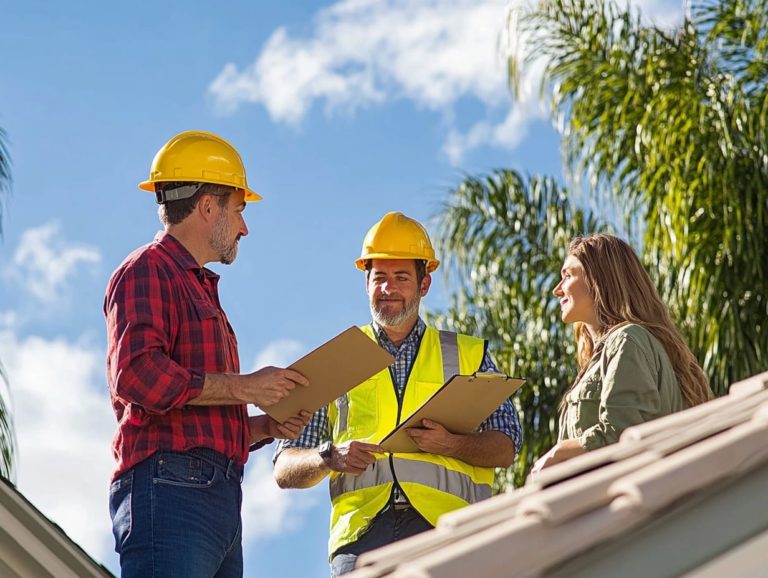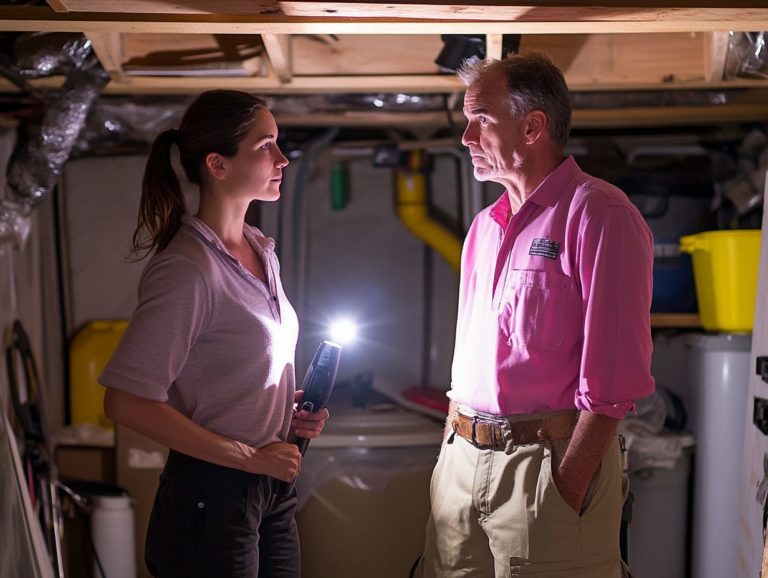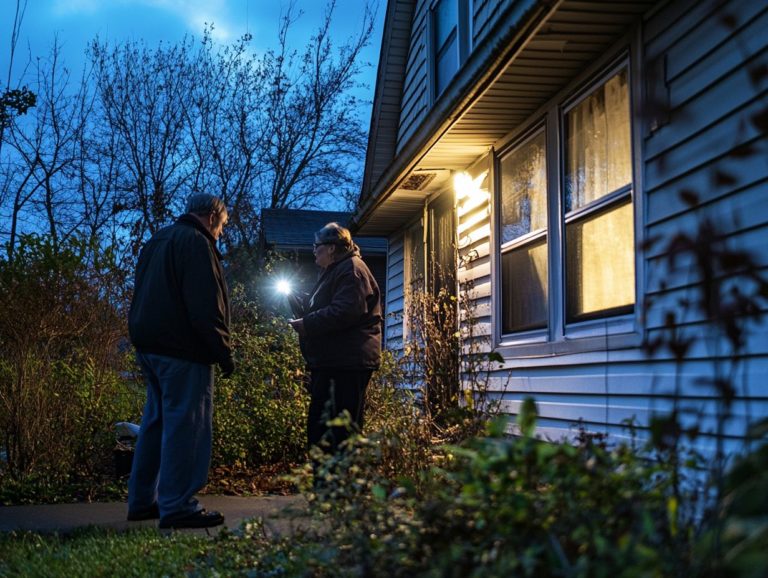The Importance of Home Inspections Before Buying
Purchasing a home stands as one of the most significant investments you will ever undertake, making it imperative to ensure that this decision is sound.
This is where home inspections play a vital role. This article delves into the specifics of what a home inspection encompasses, why it holds particular importance for buyers like you, and what you can anticipate throughout the process.
You will find discussions on common issues that may arise, alongside valuable tips for choosing the right inspector. Understanding these details helps you prepare to make informed decisions and safeguard your investment.
Contents
Key Takeaways:

A home inspection is crucial before buying a house to assess any potential issues and ensure the safety and value of the property. Don’t risk your hard-earned money by skipping a home inspection; the importance of home inspections before buying cannot be overstated, as it can lead to costly and dangerous problems in the future. Homebuyers should carefully choose a qualified and experienced home inspector to ensure a thorough and successful inspection.
What is a Home Inspection?
As a homebuyer, this process is crucial. A home inspection serves as a thorough assessment of a property’s condition, usually conducted by a certified home inspector. Understanding the importance of home inspections is vital, as it helps uncover any significant issues or concealed problems that may impact the safety and functionality of the home.
It offers detailed insights into various facets of the property, from its strength and stability to its plumbing, electrical, and HVAC systems, along with identifying any potential safety risks that could emerge down the line.
Why Home Inspections are Important Before Buying
Home inspections are essential for you as a potential buyer in the home buying process, acting as a protective measure against entering a significant financial commitment without a complete understanding of the property’s condition. Understanding the importance of home inspections before closing can help you make informed decisions.
These inspections reveal crucial details about safety risks, structural issues, and maintenance requirements that can greatly affect your choices when engaging with sellers, highlighting the importance of a thorough home inspection.
Benefits for Buyers
Home inspections provide many benefits for buyers, offering a comprehensive evaluation of the property that uncovers both minor and major issues, highlighting the importance of home inspections for property buyers that could sway your purchasing decision.
By opting for a professional home inspection, you can attain a clearer understanding of the property’s condition, enabling you to make informed choices. This careful inspection also highlights any urgent repairs that might be necessary and underscores the importance of home inspections for new homeowners, paving the way for meaningful negotiations with sellers over repair requests.
Such negotiations can help you significantly reduce overall costs while providing peace of mind regarding safety concerns within the home. Being aware of the precise state of essential systems such as plumbing and electrical equips you to handle any necessary maintenance or upgrades, ultimately fortifying your investment.
Potential Risks of Skipping Inspection
Imagine discovering a serious issue after purchase! Opting to forgo a home inspection exposes you to significant risks, including the unsettling possibility of buyer’s remorse stemming from unexpected hidden issues and major defects that may emerge post-purchase. Understanding the importance of a home inspection for buyers can help mitigate these concerns.
Without a careful examination, you might overlook undiscovered problems like:
- Mold lurking in damp corners
- Structural foundation issues that could compromise the home s integrity
- Hazardous electrical and plumbing malfunctions that remain hidden from view
Each of these concealed dangers not only brings immediate repair costs but also poses long-term safety threats that could undermine the overall value of your investment.
By conducting a comprehensive inspection, you enable yourself to make informed decisions, ensuring you won t be blindsided by issues that could lead to costly surprises and emotional turmoil down the line.
What to Expect During a Home Inspection
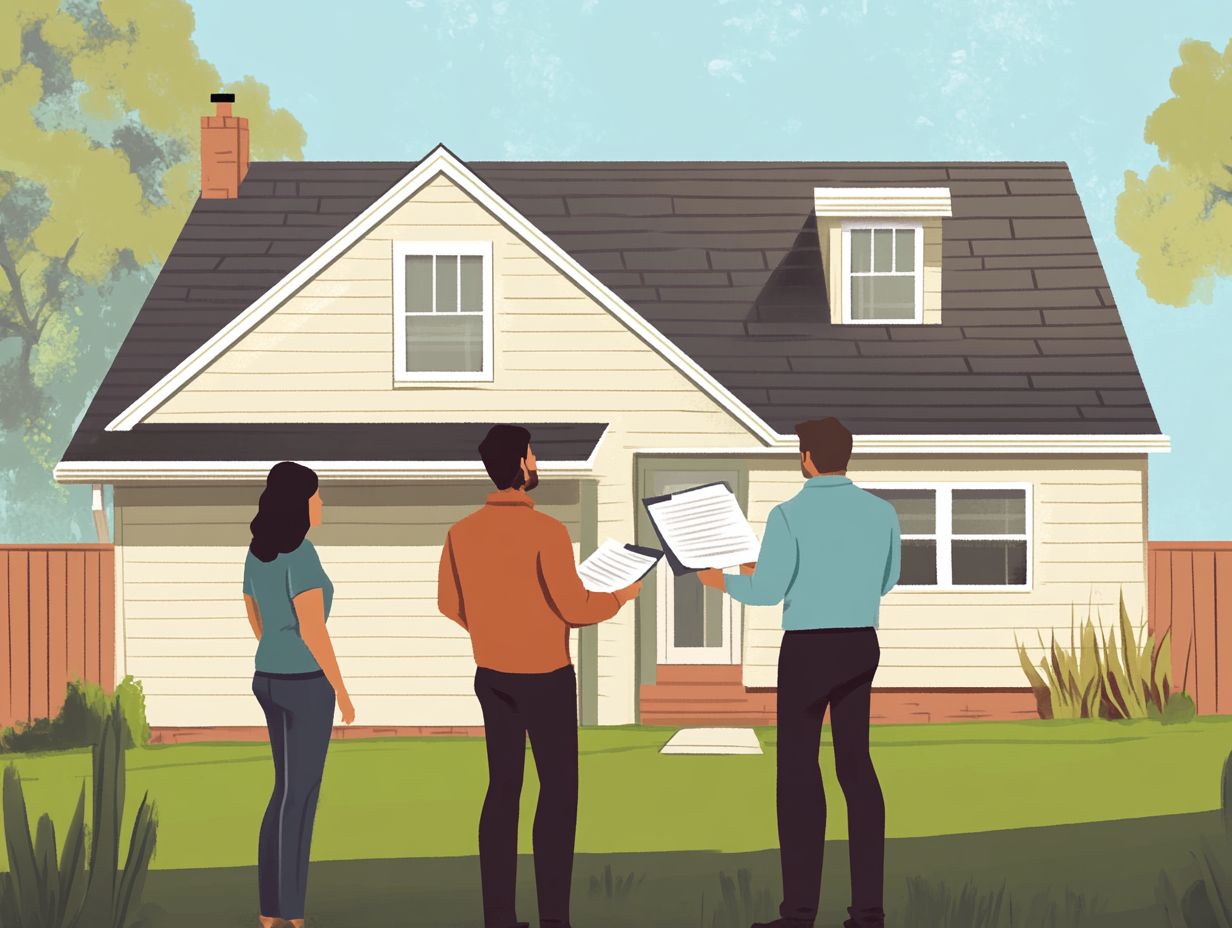
During a home inspection, you can anticipate a meticulous evaluation of the property’s condition, all supported by a detailed checklist that assists the inspector in assessing various critical components. This ensures that no detail is missed throughout the process.
Typically lasting several hours, the inspection allows for a thorough examination of everything from the roof and foundation to the internal systems, offering you a comprehensive understanding of the home’s overall state.
Ready to protect your investment? Schedule a home inspection today!
Step-by-Step Process
The step-by-step process of a home inspection involves several key stages. It begins with a thorough visual assessment of the home’s exterior. The inspector examines the roof, foundation, and siding closely. Afterward, an internal exploration of critical systems like electrical, plumbing, and heating, ventilation, and air conditioning (HVAC) follows.
During the exterior assessment, the inspector checks for signs of wear, water damage, and overall structural integrity. This ensures the roof is secure and free from leaks. Once inside, the inspection delves deeper into essential systems.
Inspectors scrutinize electrical panels for code compliance, plumbing for leaks and pressure, and HVAC systems for efficiency and proper functioning. Every finding is documented in a comprehensive inspection report. This report highlights noteworthy issues, ensures clarity for potential repairs, and establishes a baseline for future reference.
This thorough approach equips you, the homebuyer, with essential knowledge. It fosters transparency between you and the seller throughout the real estate transaction.
Common Issues Found During Home Inspections
Home inspections frequently uncover common issues that can significantly impact both the safety and value of your property. Among these are:
- Structural problems
- Electrical and plumbing concerns
- Mold detection
Addressing these matters promptly safeguards your investment and ensures a secure living environment.
Structural Problems
Structural problems are among the most critical issues encountered during home inspections. These often involve damage to the foundation, roof, or load-bearing walls, raising significant safety concerns for anyone living in the home.
Signs like sagging roofs may indicate a compromised frame or improper installation. Ignoring these red flags can lead to costly repairs and hazardous living conditions.
Cracks in the foundation can signal serious structural deficiencies that jeopardize the home’s overall integrity. As a homebuyer, being diligent is essential. Such issues not only diminish property value but can complicate future resale opportunities.
Understanding various types of structural problems enables you to make informed decisions that protect both your investment and well-being.
Mold and Water Damage
Mold and water damage commonly surface during home inspections, presenting substantial health risks and potentially triggering extensive renovation projects. Look for signs such as discoloration on walls, a musty odor, and visible water stains, which can indicate hidden moisture problems.
These conditions compromise your home’s structural integrity and can lead to serious health implications, such as respiratory issues and allergic reactions for residents.
Addressing these indicators promptly is crucial. Delaying action could escalate remediation costs significantly. By prioritizing early detection and tackling mold-related concerns head-on, you can safeguard your health, preserve your property value, and sidestep costly repairs.
Electrical and Plumbing Issues
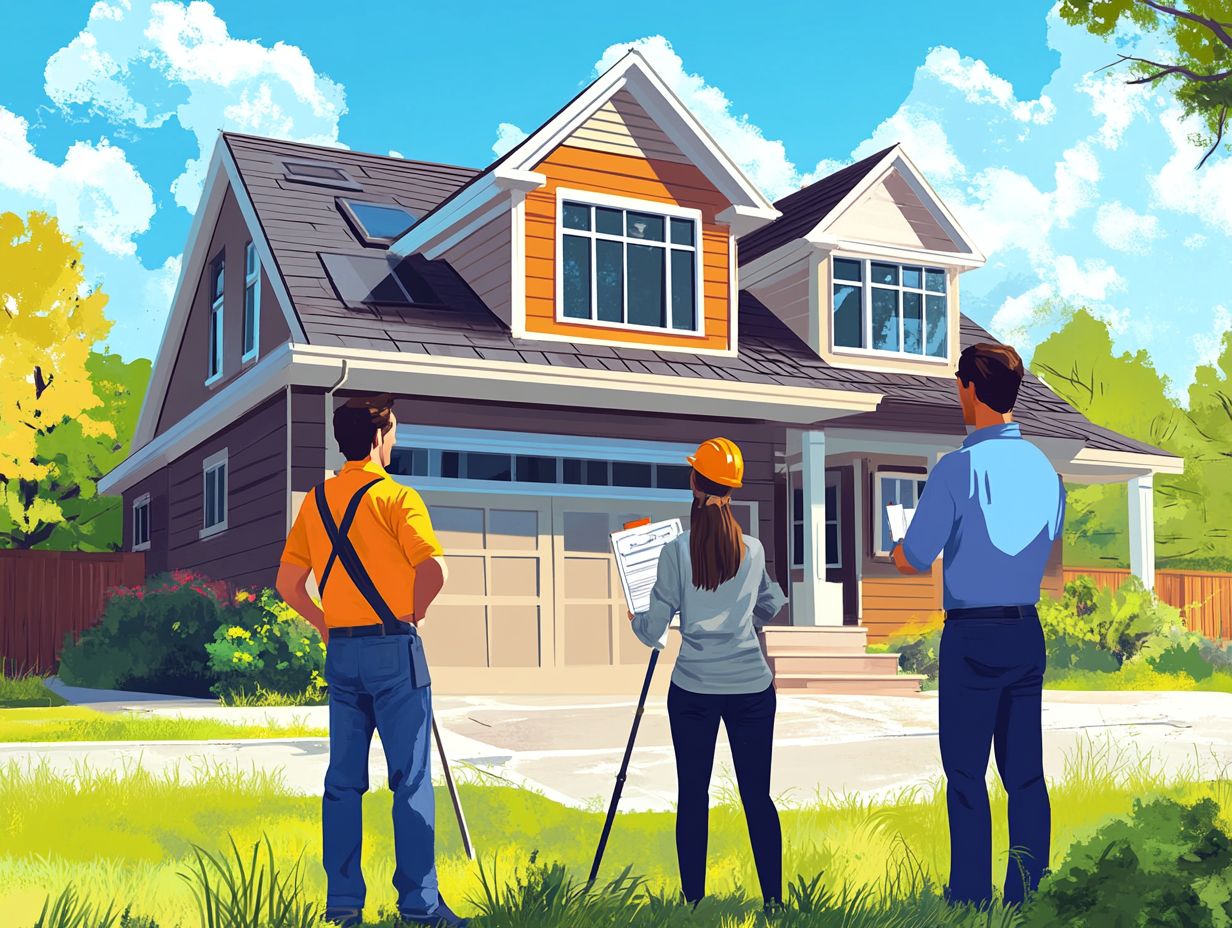
Electrical and plumbing issues are critical concerns to evaluate during a home inspection. These issues can lead to safety risks and significant repair costs if not addressed before closing.
Inspections often uncover outdated wiring systems that pose fire hazards or risk power overloads. Leaky pipes can result in water damage and mold growth.
Indicators such as frayed wires, non-grounded outlets, and corroded plumbing fixtures are carefully documented. The inspection report highlights these defects, detailing their potential dangers to help you make informed decisions.
Being aware of common issues from inadequate grounding to faulty shut-off valves emphasizes the importance of thorough evaluations in ensuring a safe and functional home environment.
Don’t wait! Addressing these critical issues promptly can save you money and ensure your new home is safe and sound. If you have questions or want to schedule an inspection, reach out today!
How to Choose a Home Inspector
Selecting the right home inspector is essential for you as a buyer. Understanding the importance of home inspections in real estate can help ensure that their qualifications and credentials significantly influence the quality of the inspection and the comprehensiveness of the final report.
Seek out certified professionals with a proven track record in identifying safety concerns and major issues across different property types. Your choice can make a difference in ensuring a thorough evaluation of your potential new home.
Qualifications and Credentials to Look For
When selecting a home inspector, prioritize qualifications like certifications from recognized organizations and relevant experience in the field.
It’s essential for the inspector to hold certifications from reputable bodies, such as the American Society of Home Inspectors (ASHI) or the International Association of Certified Home Inspectors (InterNACHI). These certifications signify a commitment to professional standards and ongoing education.
Experience is pivotal. Inspectors with a rich background provide thorough assessments and invaluable insights into potential issues affecting a property s value. Their understanding of local building rules ensures they can identify compliance with safety standards, giving you peace of mind during one of life s biggest investments.
Tips for a Successful Home Inspection
To achieve a successful home inspection, be thoroughly prepared. Familiarize yourself with the inspection checklist and take an active role in the process.
Accompany the inspector to ask pertinent questions and address any concerns as they arise. Engaging in this way enhances understanding and enables you to make informed decisions about your potential new home.
Preparing the Home and Accompanying the Inspector
Preparing your home for inspection is crucial. Ensure that every nook and cranny, including crawlspaces and attics, is accessible for the inspector. This comprehensive review of the property s condition is critical.
To streamline the process, clear away any obstacles like furniture, boxes, or personal items that might block access to important areas.
Make sure all utilities are on, especially electricity, water, and gas. This allows the inspector to run tests on appliances and systems, ensuring everything works properly.
Accompanying the inspector is a golden opportunity to gain firsthand knowledge about the property. You can ask questions and understand potential issues or necessary repairs that may arise.
This proactive approach enhances your inspection experience and boosts your confidence in decision-making.
Frequently Asked Questions
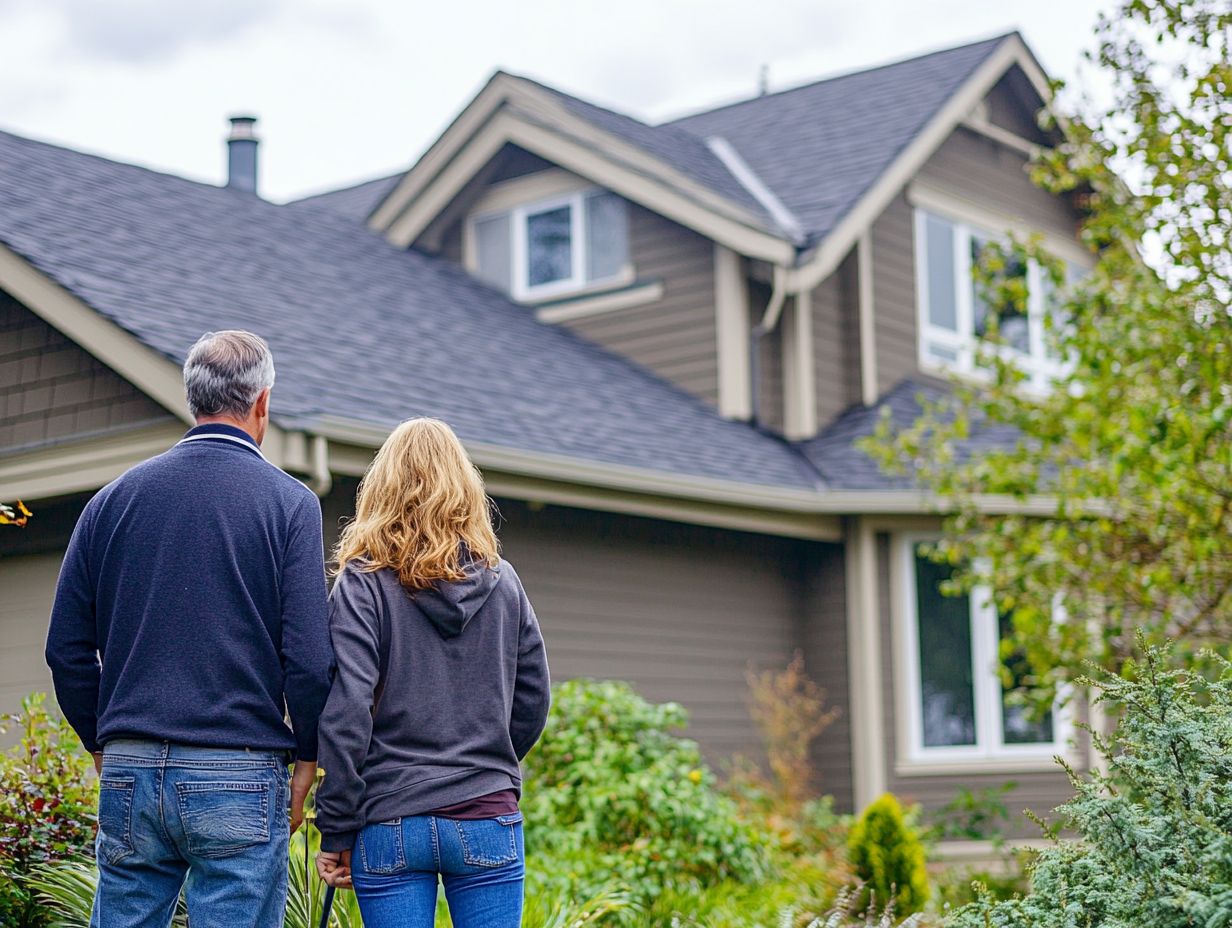
-
What is the importance of home inspections before buying?
-
Home inspections are crucial as they help identify potential issues with the property. Understanding the importance of pre-purchase home inspections allows buyers to make informed decisions and avoid surprise expenses after the purchase.
-
Who should conduct a home inspection?
-
A professional and licensed home inspector should be hired. They have the expertise to identify potential problems with the property.
-
When should a home inspection take place?
-
A home inspection should occur before finalizing the purchase of a home. It is typically scheduled after the buyer and seller sign a purchase agreement but before the closing date.
-
What are some common issues found during a home inspection?
-
Common issues include structural problems, electrical and plumbing issues, water damage, mold, and pest infestations. These can be costly to repair and may affect safety and livability.
-
Can a home inspection affect the buying process?
-
Yes, it can affect the buying process. If major issues are found, the buyer may negotiate with the seller to lower the price or request repairs. In some cases, the buyer may choose to back out if the issues are too severe.
Don t delay ensure your investment is sound today!
Is a home inspection necessary for new constructions?
Yes, a home inspection is still important for new constructions.
A newly built house can still have hidden problems or mistakes. Protect your investment get that inspection!



